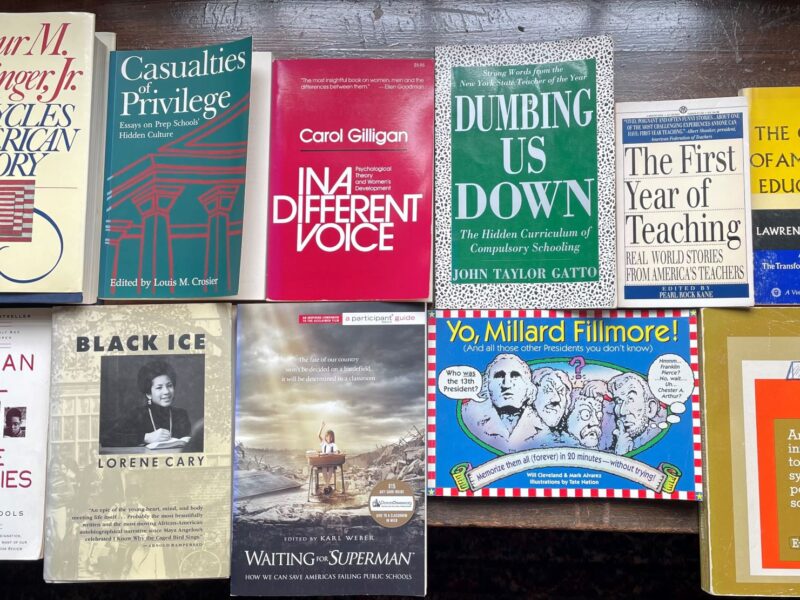As a kid, I was always told that I was a “bright kid who doesn’t apply himself.” It was perhaps the dominant theme in the many parent-teacher conferences I experienced during my middle school years. Not only did I resent the characterization at the time, I continue to feel that it’s pretty much the most useless thing a parent or teacher can say to a kid.
My 7th grade mindset read it as polite “adult-speak.” I figured that it was the job of the teachers to utter the phrase and that it was then mine to fiddle along for a few weeks before we would then reconvene and do the whole routine all over again.
My cynical side was convinced that the teachers would never say the opposite – i.e., “You know, Mr. and Mrs. Gauld, since we last met, we’ve acquired some new data, and Malcolm really is not all that bright after all.” – even if they believed it to be the truth. After all, it wasn’t hard to notice that there were all sorts of kids who were not doing well, and every single one of us had been told that we were bright kids who didn’t apply ourselves. I thought to myself, There’s no way that can be true!
Nearly a half-century later, parents and teachers still cling to that phrase. It’s also no accident that “bright” always comes first in that time-honored proclamation. It’s time for a change. Make the bright part come second. Praise kids’ effort… as opposed to their intelligence.
Stanford’s Carol Dweck (See her book Mindset – The Psychology of Success (Ballantine, 2008) and others advance a simple formula: Praise kids for their effort and they’ll keep working through ups and downs. Praise them for their intelligence and not only will they learn to view their failures as evidence of stupidity, they’ll start to dodge challenges holding uncertain outcomes, the very challenges that are necessary for character development and personal growth.
But you have to mean it. 35 years of teaching have taught me one thing for sure: Never kid a kid.
Or, as Dweck explains: “Kids are exquisitely attuned to the real message and the real message is, ‘Be smart.’ It’s not, ‘We love it when you make mistakes and learn.’”
Study after study shows that resilience trumps intelligence. So, let’s make it the primary emphasis within our schools and families. In my experience, if kids work hard, brightness tends to follow. However, the fact that they’re bright doesn’t necessarily mean that they’ll become hard workers. And in the very challenging future our kids will inherit, the absence of an exemplary work ethic will most assuredly be perceived as a sign of suspect intelligence.
Onward,
Malcolm Gauld


